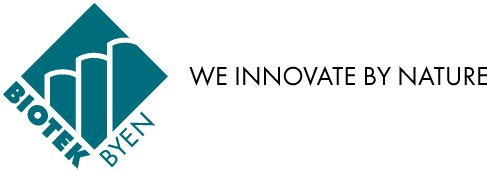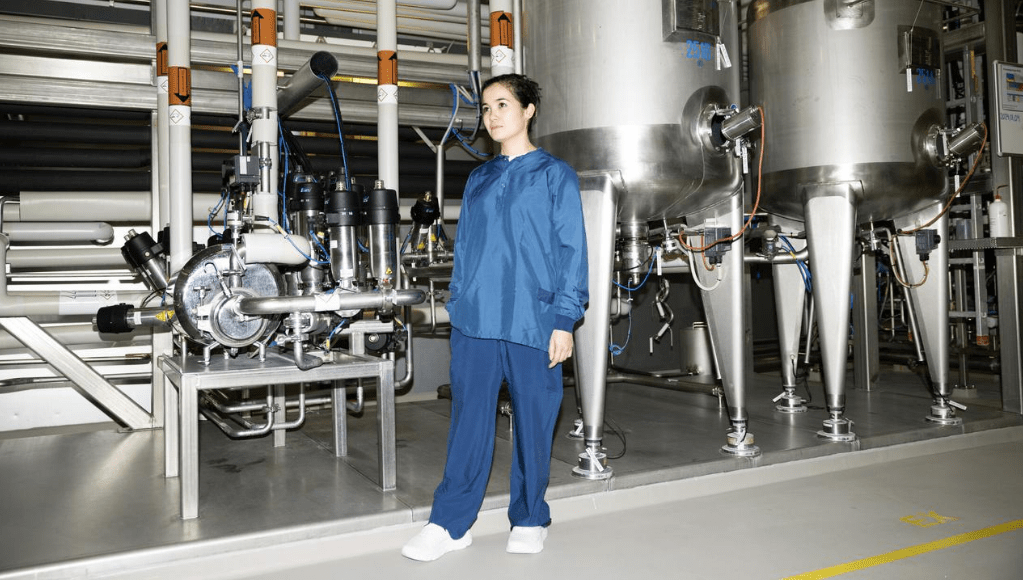The article is freely translated from Børsen's article published 16th february 2024. Click here to read the article in Danish in Børsen.
Employees like Shiella Mae Meradores and Jonathan Murray is a part of the solution to the labor shortage challenges in Kalundborg. Senior Vice President at Novo Nordisk, Michael Hallgren, foresees that every fourth employee will come from abroad in the future.
Few of Shiella Mae Meradores’ colleagues were comfortable speaking English at work, when she was employed at Novo Nordisk in Kalundborg in 2017.
Even though Novo Nordisk was and is the world’s largest manufacturer of insulin, it was unprecedented to have international employees at the manufacturing facilities in the small town in western Zealand.
In my department I was the first international colleague, and many were reluctant to speak English. Today, everyone speaks English, and I can clearly feel, how we have become an international workplace compared to the time I was employed, says Shiella Mae Meradores, who comes from the Phillipines and has a Bachelor of Engineering in Biotechnology from University College Absalon in Kalundborg.
When Shiella Mae Meradores came to denmark as au pair in 2015, she had never heard about Novo Nordisk, and she knew nothing about Kalundborg.
Now, she walks casually around the big blank steel tanks and process plants at one of the factories of Novo Nordisk’s large manufacturing site in a blue suit and white shoes. One of several hygiene factors that gives the high ceiling building a clinical impression and a reminder of the fact that ingredients for vital medicine are produced in here, when yeast is converted to insulin crystals.
Shiella Mae Meradores is employed as process engineer. She has both taken her education in Kalundborg and settled down in the town with her Norwegian boyfriend and their four-year-old daughter. That makes her a part of the story about how Novo Nordisk in few years has succeeded in turning a situation of constant shortage of highly skilled labor.
Today, Denmark’s biggest international pharmaceutical company has success recruiting and retaining employees from abroad and from new education programs in Kalundborg. And this has great importance to Novo Nordisk’s decision of investing as much as 42 billion DKK in new manufacturing facilities in Kalundborg towards 2029.
An investment expected to create 800 new jobs.
Noone would dare to invest that much money in an area where you knew that there was a labor shortage, says Michael Hallgren, Senior Vice President at Novo Nordisk manufacturing facilities in Kalundborg.
rural denmark and commuting life
According to Michael Hallgren, Novo Nordisk was short of 100 academics at the manufacturing site in Kalundborg eight-ten years ago. A problem that grew bigger as Novo Nordisk expanded its activities in the town. Roughly speaking, it was difficult to get people from the capital area to settle down in an area that to many is considered “rural Denmark”.
When Novo Nordisk employed newly graduated engineers and biochemics from the big educational cities, they only stayed 1.8 years in average. Then they would have enough Novo experience on their resumé to skip the commuting life and get a job in a bigger city where they had done their studies.
Our investment in educations in Kalundborg combined with recruitment of foreign labor have become keys to solving that challenge, says Michael Hallgren.
While there were no academic educations in Kalundborg in 2016, almost 300 academics are admitted to Campus Kalundborg in 2024 – where you can e.g. study a Bachelor of Engineering in Biotechnology or a Bachelor of Engineering in Mechanical Technology. At the research and education center Helix Lab, which is funded by Novo Nordisk among others, master students from all over the world can write their thesis in close collaboration with Kalundborg’s companies.
To me it has meant a lot that I could get a student job at Novo Nordisk while I was studying. As non-European it was important that I had an income while I was studying, says Shiella Mae Meradores, who got a scholarship for her studies.
She speaks louder than the buzzing noise in the factory hall.
I was never frightened by the thought of moving to Kalundborg. The most important for me was to get an education in Europe and a job within biotechnology. And when I googled biotech, Novo Nordisk kept popping up. I also found out that the industry here was collaborating with the education programs at Absalon. Then it did not mean anything that I was going to a smaller town, says Shiella Mae Meradores.
She pictures herself working for Novo Nordisk and living in Kalundborg with her family in both five and ten years.
joint recruitment efforts
This affirms Michael Hallgren in the assumption he had already in the 2010s, where Novo Nordisk struggled in retaining commuters from the capital area.
We have to get people to settle down to make them stay. If they get their education here, or they come from abroad and settle down, they stay, says Michael Hallgren.
This seems to hold true concerning employees coming from abroad. Concerning students from Absalon and Helix Lab, it also bodes well.
About 70 pct. of both foreign and Danish students are still here. The time horizon is quite short of course, because the first students graduated in 2021, says Michael Hallgren.
In 2016 he helped start the recruitment alliance in Kalundborg, which was a collaboration between the companies, job center, business council, and the municipality to secure labor for the companies in Kalundborg, brand the town abroad, and to find jobs for foreign employees’ partners.
This payed off. In 2016, all Novo Nordisk’s employees in Kalundborg had a Danish passport but today, 11 pct. of the 4500 employees come from abroad – holding 66 different nationalities. Besides Denmark, most employees come from India, Spain, Brazil, Greece, and Germany.
In a relatively short period, we have made a big transformation from being an all Danish workplace to being an international workplace. I don’t see any reason why the number would not be 25 pct. in six to eight years, says Michael Hallgren about the prospects that the next years’ many new employments will increase the proportion of international employees.
Work-life balance
Especially engineers, and employees within data science and biochemistry, are recruited from abroad by Novo Nordisk.
Among these is civil engineer Jonathan Murray from the USA. He started as senior project manager at Novo Nordisk in June. The following month, his wife Lauren and their three children came to Kalundborg; the family now lives in a typical Danish villa area, and the children go to a Danish school.
Jonathan Murray grew up as expat and had for long discussed with his wife that they wanted to try the expat life with their family.
One of the reasons why we wanted to come to Denmark was the Danish approach to work-life-balance and the childrens upbringing. This culture attracted us. At the same time I could see that there were job openings at Novo Nordisk that I could fill and develop in, says Jonathan Murray, who has sat down around the dining room table in their house together with his wife and children.
Plans of staying
The new furniture and the tidy surfaces testify that the family arrived with just the bags they could carry across the Atlantics.
Our plan is that this is a longer stay. Our children go to Danish school, and we integrate as much as we can, says Jonathan Murray.
He explains that it is not just Novo Nordisk that has eased the relocation by assisting on work visa and necessary paper work. The neighbors have welcomed the family with apple pie, and Jonathan Murray tries, to the best of his ability, to talk to the retired couple living next door.
They have also worked at Novo, and I can hear how proud they are of it. But they do not speak that much English, says Jonathan Murray.
However, all employees at Novo do. And it is not just Jonathan Murray and his wife who spend 4-5 hours a week at language school. Today, all daily, operational meetings are in English at the manufacturing site, which is why several of the Danish employees take English courses in their spare time.
Knowing that they will get more international colleagues in the future. And that the future is just around the corner in Kalundborg. Should anyone be in doubt, they can just take a look at the many cranes and the giant construction site where the new factory will be in 2029.


